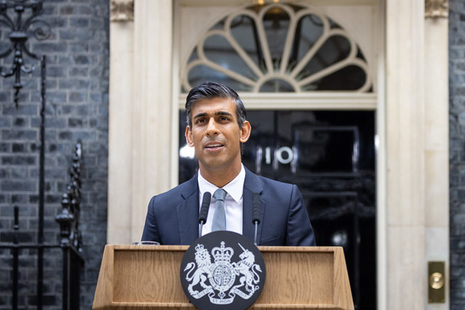
Ahead of the UK general election on 4 July, the UK Conservative Party has launched its manifesto which contains a commitment to “redouble efforts to help achieve diplomatic breakthroughs" in Sri Lanka, as well as in Cyprus, Sudan and Myanmar.
The manifesto also includes pledges to “support marginalised communities in the developing world and protect those persecuted for their ethnicity, political views, faith or sexuality”.
It went on to detail how the Conservative Party “strengthen our relationships with like-minded partners around the world” and that the UK “must be prepared to tackle the axis of authoritarian states and hostile actors who are working together to threaten international security”.
Prior to coming to office, UK Prime Minister Rishi Sunak, noted his pride in the UK’s leadership in drafting the latest United Nations Human Rights Council’s resolution, which mandated the collection of evidence that may be used in a future war crimes tribunal. He further stressed the need to curb the “inappropriate influence from [Sri Lanka’s] military”.
“I am proud of the UK’s role, and the UK will continue to play a central role in bringing about justice and accountability” Sunak noted.
Read more here: Rishi Sunak speaks on curbing Sri Lanka's military and justice for 'pain of 2009'
Last October, the British Tamil Conservatives also welcomed the leader of the Tamil National People's Front, Gajen Ponnambalam MP, at the Conservative Party conference. At the conference, Ponnamabalam spoke against the genocide committed against Tamils and was joined by a number of senior conservative party MPs.
Read more here: TNPF leader speaks at British Tamil Conservatives Conference
The Conservative party is facing increased calls to impose sanctions on Sri Lankan officials accused of war crimes from members of the opposition. Marking Tamil Genocide Remembrance Day, senior Labour party officials spoke at an event in parliament where they stressed the need to impose sanctions on individuals such as general Shavendra Silva and refer Sri Lanka to the International Criminal Court.
